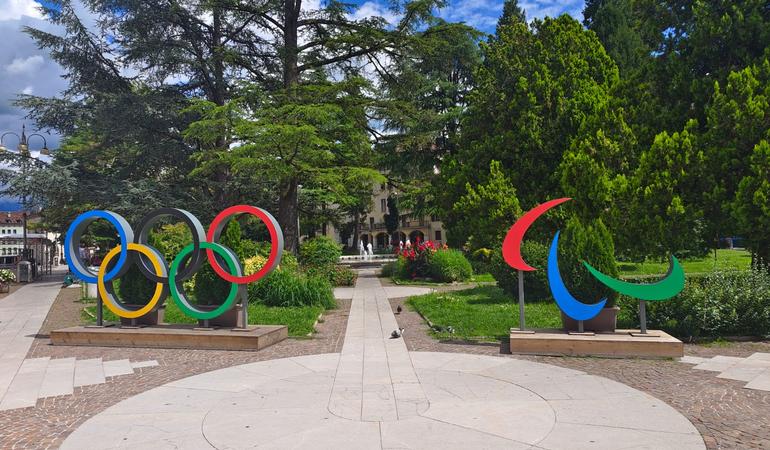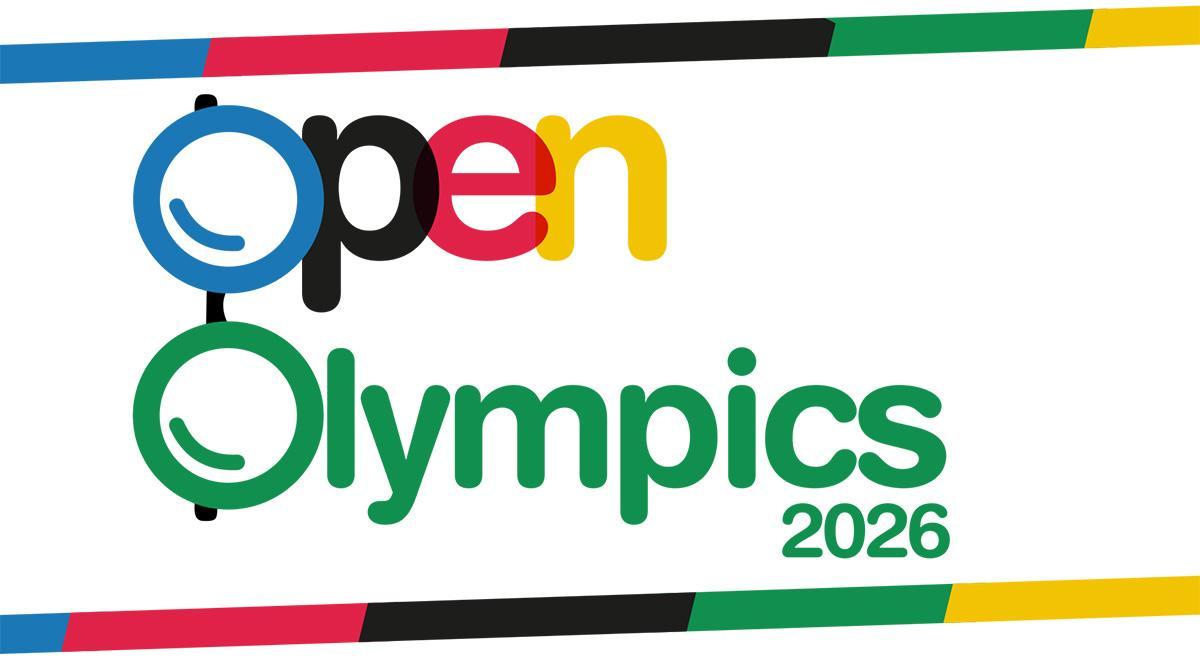
Il forum sull'eredità olimpica di Milano-Cortina 2026 non è mai entrato in funzione

Elena CiccarelloDirettrice responsabile lavialibera



24 maggio 2024
A total of 5.72 billion euros, of which 1.6 billion for the realisation of the Games and another 4.12 billion for related works. This is the expenditure for the realisation of the XXV Olympic and Paralympic Winter Games in Milan-Cortina 2026 that 20 associations managed to map and collect in the report presented today in Pieve di Cadore (BL), on the occasion of the launch of the civic monitoring campaign 'Open Olympics 2026. We want the Milan Cortina Winter Games to be transparent, legal and accountable'.
During the presentation, the network of promoting associations, made up of national and territorial realities such as Libera, WWF Italy, Italia Nostra, Legambiente, Cai centrale, Mountain Wilderness Italy and Cipra Italy, explained: "The numbers do not pretend to be a punctual and complete report, since there is no single institutional list. And that is why we ask for transparency". Not only that: "It is not up to us, civil society, to provide a list of works and their cost', also because "many works will be subcontracted, making it even more difficult to find data'. The shared objective is therefore to sound an alarm 'we are talking about an enormous amount of resources and planning, capable of changing the face of the territories as we know it today'. Luigi Ciotti, president of Libera, present at the day, addressing the representatives of the local and territorial communities commented: "They are the real protagonists of this request, because this is their home. But the Games belong to everyone and everyone has the right to know what is happening".
"The resources currently allocated to the Fondazione Milano-Cortina 2026 (sole implementer) for the realisation of the games alone are 1.6 billion, an increase of 18.5 per cent compared to the first allocation of 1.35 billion euro"
The Milan Cortina 2026 Winter Olympics and Paralympics will take place in Veneto, Lombardy and the autonomous provinces of Trento and Bolzano. As far as we have been able to learn through the territorial work and the collection of information carried out so far, both the construction of works necessary for the holding of the Games and infrastructural interventions connected to the sports event are planned in these territories. Of the 4.120 billion in funds for related works, 68 per cent is earmarked for the construction of 45 road works, for a total cost of 2.816 billion.
In Lombardy, 52 per cent of the works will be carried out, absorbing 47 per cent of the costs, while in Veneto, 13 works are planned (16 per cent of the total), but with a significant overall burden, corresponding to 33 per cent of the total. Lastly, the report states, 'the works to be held in the territory of the Autonomous Province of Bolzano alone are numerically superior to those in the Veneto region as a whole (14 in total in Alto Adige), opening up a question regarding their environmental impact, also considering that the area of Alto Adige (7,398 square kilometres) is less than half that of Veneto (18,345 square kilometres)'.
According to what has emerged from the data collected so far, for the realisation of the games alone, the resources currently allocated to the Fondazione Milano-Cortina 2026 (sole implementer) are 1.6 billion, an increase of 18.5 per cent compared to the first allocation of 1 billion 350 million euro. Of these resources, almost 70 per cent are earmarked for road works.
In Italy politicians want to punish environmentalists with disproportionate sentences
However, the information found could offer a downward picture. "While it is true that we have just reported data and costs for 79 works, we are by no means certain that we have managed to map all the works," say the promoters of the civic monitoring initiative. "We want to be certain of a responsible use of resources, in order to properly assess their impact on our lives and on the environment," they continue, "discouraging any desire for criminal infiltration, mafia-style and corruptions, and ensuring that unnecessary expenditure is avoided.
At the moment, no one is able to say with certainty, in fact, how many infrastructures are connected to the Winter Olympics, since there is no single database where these data can be found. We do not know the actual number of works, nor their total cost. It is difficult to find out the names of those responsible for a work and how commissioners can influence the mechanisms for awarding works. Finally, it is impossible to assess the impact of infrastructures as citizens are not aware of the reasons why works are commissioned. There are different sites and portals to find data, which makes it more difficult to follow the status of the works and the companies involved. Finally, the associations conclude, 'of too many works we do not know when they will be ready, and what will happen to them in the future'.
"We have already said several times, is not an indictment: we care about safeguarding the common good, whether natural or economic resources. The added objective of monitoring is that of information"
"Only full transparency, which enables effective respect for the right to know, will guarantee that the 2026 Winter Olympics and Paralympics in Milan Cortina will be a true celebration of sport and its values, which we feel are ours and wish to see realised," say the promoters of the civic monitoring. They ask the Executive Board of the International Olympic Committee, the Milano Cortina 2026 Foundation, the Infrastructure Company Milano Cortina 2020-2026 S.p.A., Anas S.p.A. and the Italian government's Ministry for Sport and Youth, for the creation of a single portal for the transparency of the Games, for a real reporting of the interventions, which would guarantee the right to know" of citizens.
This is why, in addition to the appeal, at the end of the event in Pieve the promoters relaunched a new civic monitoring campaign. "Our ultimate goal," reads the conclusion of the report, "we have already said several times, is not an indictment: we care about safeguarding the common good, whether natural or economic resources. The added objective of monitoring is that of information".
Italy and Turkey together for Euro 2032: more profits and less rights
"The Olympic Works Plan, both in terms of interventions and investments, was defined and approved by two separate Decrees of the Prime Minister. In particular, the Prime Minister's Decree of September 2023 contains the complete list of all the works (111 interventions in total, for an economic volume amounting to Euro 3,604,551,584.00), as well as complete data on the costs, financial sources and financial coverage of each work. All this information, for two years now, has been available to everyone and published online on the government website and on the SIMICO web portal.To claim or imply that there is no transparency on the implementation of the Olympic works is absolutely false, as well as defamatory". Thus in a note the Società Infrastrutture Milano Cortina 2026 (SIMICO) disclosed by the agencies on 15 May 2024, on the issue of transparency of the works related to the Milan-Cortina Winter Olympics and Paralympics. "Società Infrastrutture Milano Cortina 2026, as in recent years, remains available to provide information and clarification, in line with the regulations on transparency,'' the statement concluded.
The Simico S.p.A. communiqué twice confirms, rather than denies, the reasons for our campaign, and it is surprising that it even refers to defamatory intentions on the part of those who legitimately promoted it.
The first confirmation concerns the fact that Simico S.p.A. explicitly reports how information on the Winter Games is present in different data sources (government, Simico S.p.A, other sources). What the Open Olympics 2026 campaign explicitly asks for is the creation of a 'Single Portal of Transparency for the Milan Cortina 2026 Winter Games', available on the platform of the Foundation and/or Simico S.p.A. and Anas S.p.A, that would enable us to understand, work by work, lot by lot, the steps and process of the same and the expenses related to the organisation and promotion of the Games. We ask that this portal be fed by disaggregated data, made available in open format, complete and continuously updated, by all the contracting stations involved, thus being multi-source. At the moment, we are not aware of the existence of such a portal, as consistent with our requests, and we are confident that Simico will work with the other parties to ensure this.
The second confirmation lies in the fact that the data reported by Simico differs from those we have mapped so far. This highlights how complex it is at the moment, even for twenty territorial and national associations, to easily access information. Therefore, in the face of the Olympic and Paralympic event, one cannot limit oneself in approaching the discipline of corruption prevention and transparency with a merely bureaucratic spirit. Transparency, in fact, can only be integral (therefore with data relating also to tenders below the thresholds, for example, or referring to all the lots of a single work) and accessible to everyone. If this were not the case, transparency would be limited to bureaucratic red tape that has nothing to do with fulfilling the right to know. The timeliness with which Simico responded to our appeal with this data is also, we hope, helpful in laying the foundations soon for joint work that puts accountability at the centre.
In the full spirit of collaboration, we are therefore willing to engage in dialogue with Simico to ensure that the portal requested by our Open Olympics 2026 campaign follows the logic of clarity for citizens as much as the needs of Infrastrutture Milano Cortina.
La tua donazione ci servirà a mantenere il sito accessibile a tutti
Olimpiadi di Milano-Cortina 2026: tutte le promesse tradite
La tua donazione ci servirà a mantenere il sito accessibile a tutti